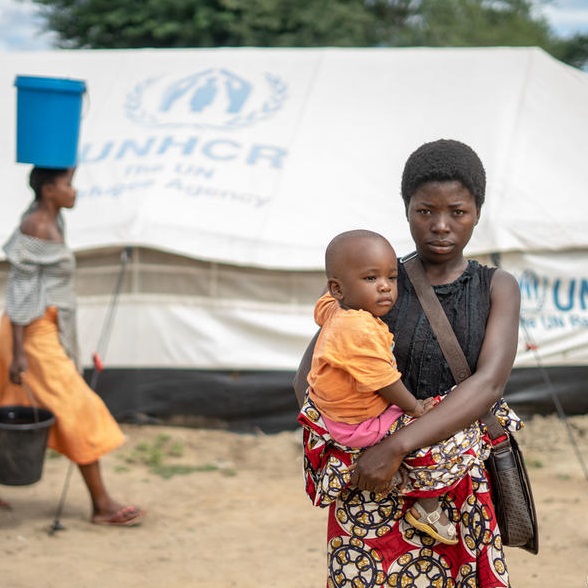Socio-economic assessment of refugees and asylum seekers in Malawi's Dzaleka and Luwani camps 2017
Malawi, 2017
Get MicrodataIdentification
UNHCR-MWI-2017-SEA-1.1
Socio-economic assessment of refugees and asylum seekers in Malawi's Dzaleka and Luwani camps 2017
| Name | Country code |
|---|---|
| Malawi | MWI |
Other Household Survey [hh/oth]
UNHCR conducts socio-economic assessments of persons-of-concern (i.e. refugees, asylum-seekers, IDPs, etc.) in a variety of countries in order to inform and improve its programming with the goal of promoting self-reliance. While these assessments are not fully standardized and are tailored to their specific country context, the quantitative surveys share strong similarities in their design and objectives, and are therefore considered a survey series for the purpose of microdata documentation/archiving.
This survey was conducted to help UNHCR's Malawi office in its multi-year, multi-partnership planning and programming. The main objective was to provide an overview of the livelihood and vulnerability situation of refugees and host families in Malawi. The survey covered Dzaleka and Luwani refugee camps as well as households living in villages surrounding the two camps. Dzaleka camp is well established and has been in existence since 1994 and hosts households from a number of neighboring countries, including Democratic Republic of Congo, Rwanda, Burundi and others. Luwani camp is relatively new and much smaller camp that hosts exclusively Mozambican asylum seekers whose status was not yet determined at the time of the survey. The survey covered 1,026 refugee households (802 in Dzaleka and 224 in Luwani) during March 2017.
Sample survey data [ssd]
Household and individual
Version
1.1: Edited, anonymous dataset for public distribution.
2018-12-15
Scope
The scope of this socio-economic assessment includes:
- Identification of the household
- Characteristics of household members (demographics, education/literacy, economic activity)
- Specific needs
- Dwelling characteristics
- Access to services
- Asset ownership
- Safety/security
- Sources of income
- Agricultural production
- Expenditure
- Food consumption groups
- Coping strategies
- Assistance
- Media use
- Subjective wellbeing
| Topic |
|---|
| Livelihood & Social cohesion |
Coverage
Dzaleka and Luwani camps, Malawi
All refugee and asylum seeker households residing in Dzaleka and Luwani refugee camps, Malawi.
UNHCR PPG: 1MWIA, 1MWIB
Producers and sponsors
| Name | Affiliation |
|---|---|
| Office of the High Commissioner for Refugees | UNHCR |
Sampling
The survey's objective was to deliver representative data of all refiugees and asylum seekers living in Dzaleka and Luwani refugee camps. The total population of these camps at the time of the survey was estimated at around 7,000 households (around 6,300 in Dzaleka and 740 in Luwani; note that this estimate considers households, not registration cases).
For this survey a stratified, single-stage (i.e. non-clustered) sample design was applied. The two camps were considered sampling strata. Within each of these strata, a sample of households was drawn randomly (using a simple random number) from the registration list.
The total sample size was 1,026 refugee households (802 in Dzaleka and 224 in Luwani).
NB: The original data collection also included a small number of households from the neighbouring host community; however, these observations were dropped from the public-release version of the dataset since purposive elements were introduced during their sample selection and they cannot be considered statistically representative.
None.
Information unavailable.
No weights were aplied during the initial data analysis given that the data is self-weighting when considered separately within each of the two camps, and the initial analysis did not produce any aggregated results across camps. However, given that selection probailities differed between the two camps, the public-release version of the data contains sampling weights calculated ex-post, which data users may wish to apply during further analysis, in particular if results are to be aggregated across camps.
Survey instrument
All questionaires are provided in section "external ressources".
Data collection
| Start | End |
|---|---|
| 2017-03-06 | 2017-03-29 |
Data was collected through computer-assisted face-to-face interviewing (using Kobo/ODK software).
Data processing
The dataset presented here has undergone light checking, cleaning and restructuring (data may still contain errors) as well as anonymization (includes removal of direct identifiers and sensitive variables, and grouping values of select variables). Moreover, households interviewed from host communities were removed.
Data Access
| Is signing of a confidentiality declaration required? | Confidentiality declaration text |
|---|---|
| yes | No attempt will be made to identify respondents or microdata providers, and no use will be made of the identity of any person, facility or establishment discovered inadvertently. Any such discovery would immediately be reported to UNHCR, to allow evaluation of further use, apply further statistical disclosure control methods, impose further restrictions on access, or appropriately re-classify the data. No attempt will be made to create links between datasets provided by UNHCR, or between UNHCR data and other datasets that could identify individuals or organizations. |
Office of the High Commissioner for Refugees. UNHCR Socio-economic assessment of refugees and asylum seekers in Malawi's Dzaleka and Luwani camps 2017 - Anonymized for Public Use. Version 1.1. Geneva: UNHCR (December 2018), Ref. UNHCR-MWI-2017-SEA-1.1. Dataset downloaded from https://microdata.unhcr.org on [date].
Disclaimer and copyrights
UNHCR does not warrant in any way the accuracy of the information and data contained in the datasets and shall not be held liable for any loss caused by reliance on the accuracy or reliability thereof.
Contacts
| Name | Affiliation | |
|---|---|---|
| Solutions | UNHCR | solutions@unhcr.org |
Metadata production
UNHCR-MWI-2017-SEA-1.1
| Name | Role |
|---|---|
| Office of the High Commissioner for Refugees | Collection and documentation of records |
2018-12-15
Metadata version
Version 1.1 (December 2018)
